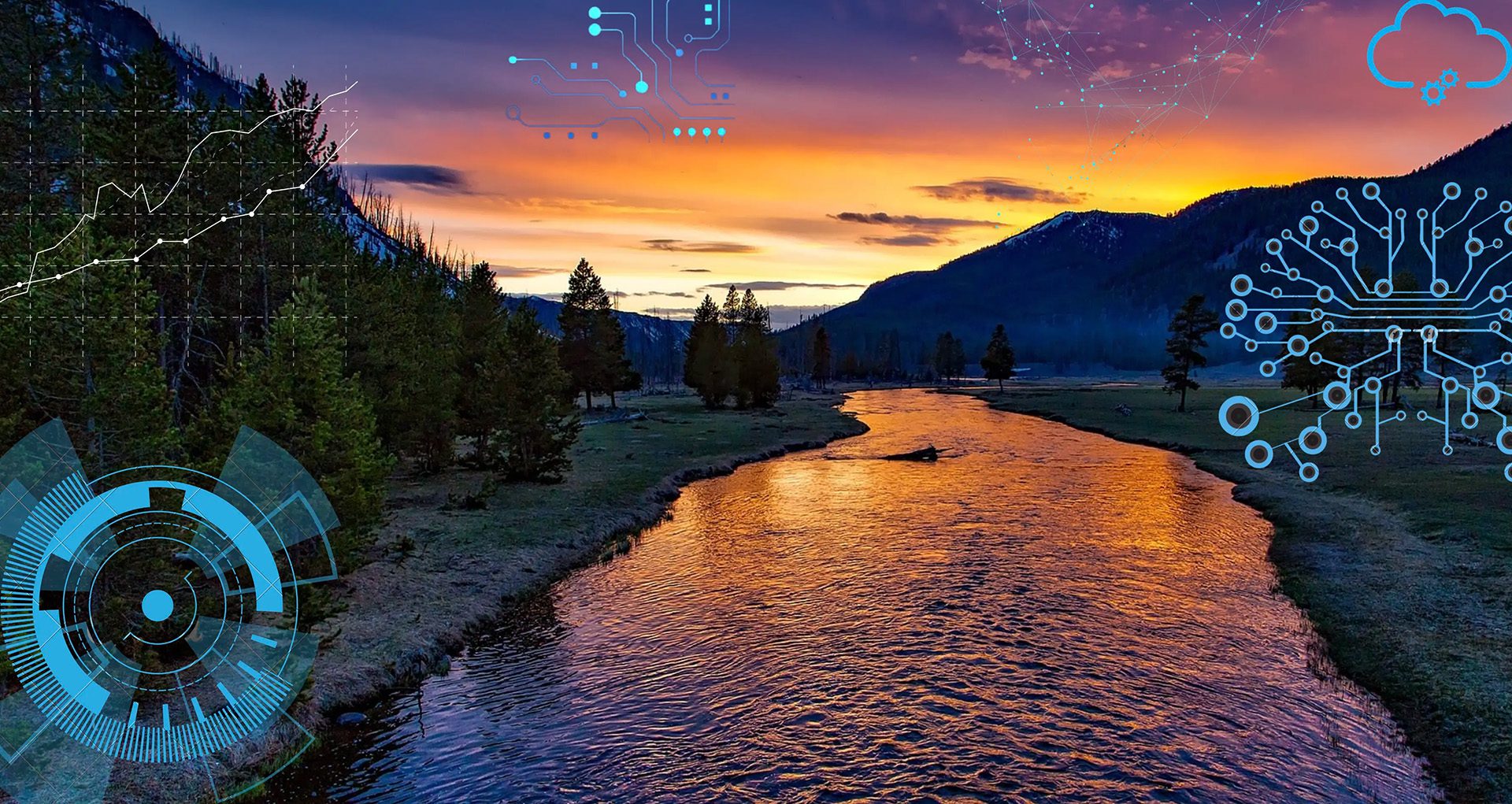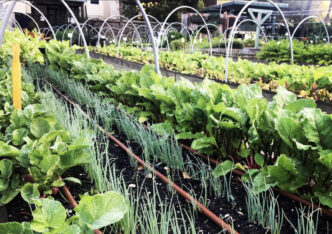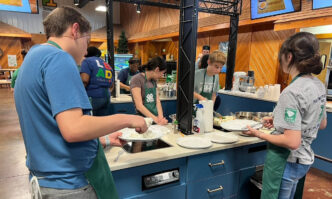Advanced cyberinfrastructure is rapidly transforming water science, but the water science user community and university curricula have not kept up with this transformation.
To address this gap, Clemson University researcher Vidya Samadi is collaborating with researchers across the U.S. to launch WaterSoftHack, a free, two-week virtual program for researchers and students.
“This initiative aims to cultivate a workforce that creates, uses and supports advanced cyberinfrastructure and tools to enable and potentially transform fundamental water science education and research,” said Samadi, the project’s principal investigator. “Our vision is to provide access to advanced cyberinfrastructure approaches and cyber training materials for the water science community.”
WaterSoftHack 2025 takes place from July 28 to Aug. 8. The program aims to foster a collaborative academic environment encouraging exploration and innovation while increasing participants’ competence and confidence in cyberinfrastructure prototyping and workflow development.
Registration is open until March 31. For more information, visit WaterSoftHack 2025. A grant from the National Science Foundation funds the program.
Topics covered in the first week include data preprocessing, autoregressive models, and machine learning. Hands-on workshops will allow participants to apply what they have learned.
During the second week, participants will complete self-guided capstone projects and present their work on the program’s final day.
Samadi said the program will increase collaboration in water science and engineering and create state-of-the-art educational tools and curricula. It also will empower researchers and students to transition from consuming to creating cyberinfrastructure technology.
Program benefits students
WaterSoftHack launched in 2024 with more than 160 participants, including 15 program fellows. It will continue through 2026.
Ethiopia Zeleke, a Florida International University Department of Earth Systems Science doctoral candidate, was part of the inaugural class. Her research focuses on the impact of water use and climate extremes on drought management and optimizing the process of tracing drought signals across systems and sectors.
“Water professionals today are dealing with massive amounts of data—more than we’ve ever had before, covering larger areas and longer periods,” Zeleke said. “While this is amazing, it can also be overwhelming. That’s where the skills taught in this program become valuable. Instead of getting bogged down in data processing, we learned how to build streamlined workflows that take us from collecting data to creating meaningful visualizations.
“The WaterSoftHack training gave us cutting-edge skills and showed us how to tackle complex water problems in a way that’s both structured and reproducible.”
Collaboration fosters innovation
In addition to Samadi, other researchers involved in this project include Clemson engineering and science education professor Matthew Boyer, Clemson graduate student Krishna Panthi, University of Iowa professors Ibrahim Demir and Bijaya Adhikari, University of Iowa graduate student Carlos Ramirez, and Consortium of Universities for the Advancement of Hydrologic Science Inc. (CUAHSI) senior research hydrologist Anthony Castronova.
Demir and Adhikari said this collaboration enhances participants’ learning experiences by bringing different expertise and perspectives in hydroinformatics and artificial intelligence.
“This cross-institutional synergy allows access to a broader range of resources and interdisciplinary experience, encouraging exploration and innovation in water science and engineering research,” Demir said. “Working with project lead Vidya Samadi provides the initiative with expert guidance and academic leadership, ensuring high-quality training and impactful research outcomes.”
Program participants develop critical skills tailored to water science research.
“Participants enhance their innovation capabilities and career prospects while contributing to sustainable water practices,” Adhikari said. “This program offers a platform for networking and community engagement, connecting participants with peers and professionals and fostering a community of practice focused on advanced cyberinfrastructure in water science.”
Training videos from last year’s inaugural class are available on YouTube.
-END-







